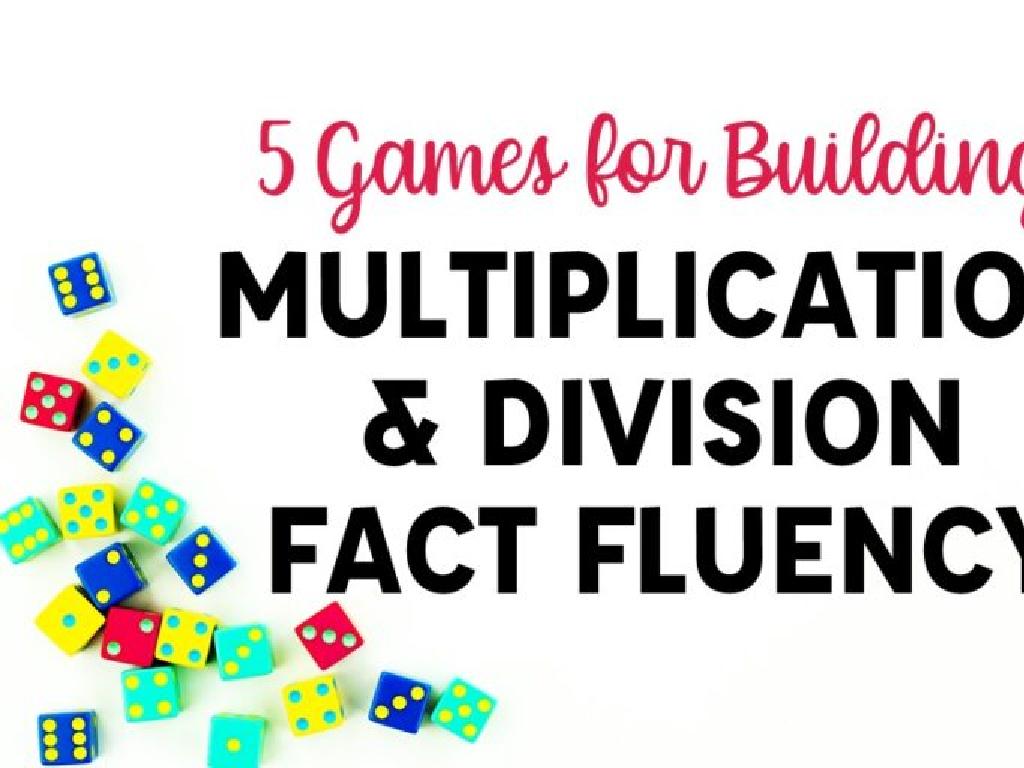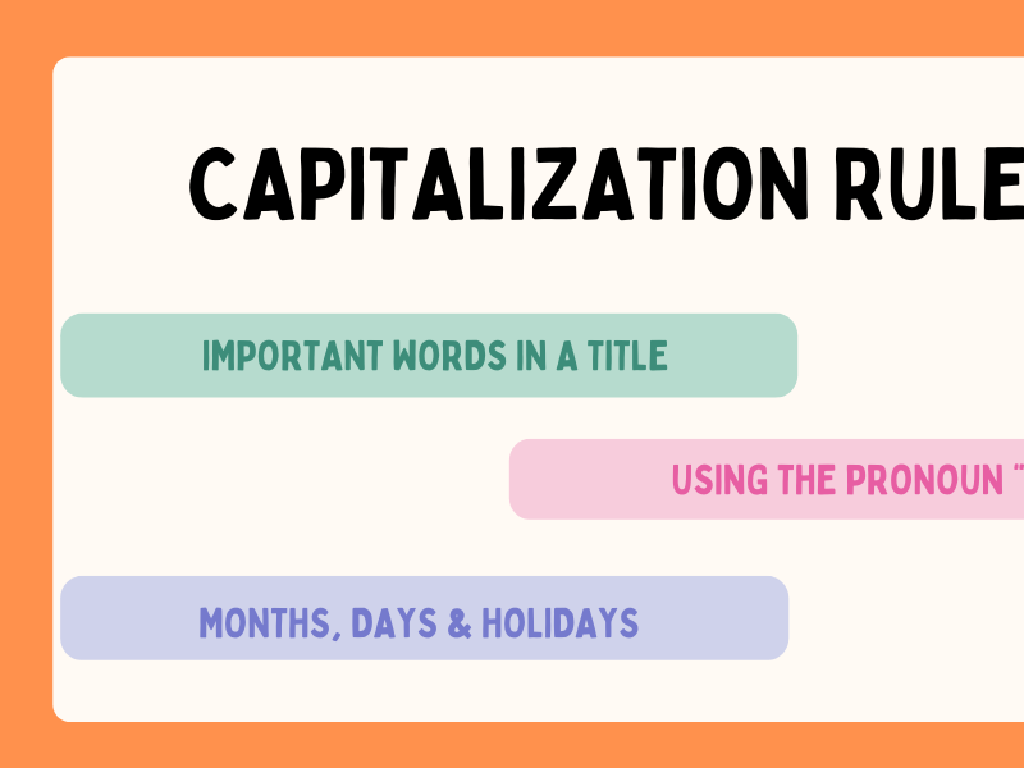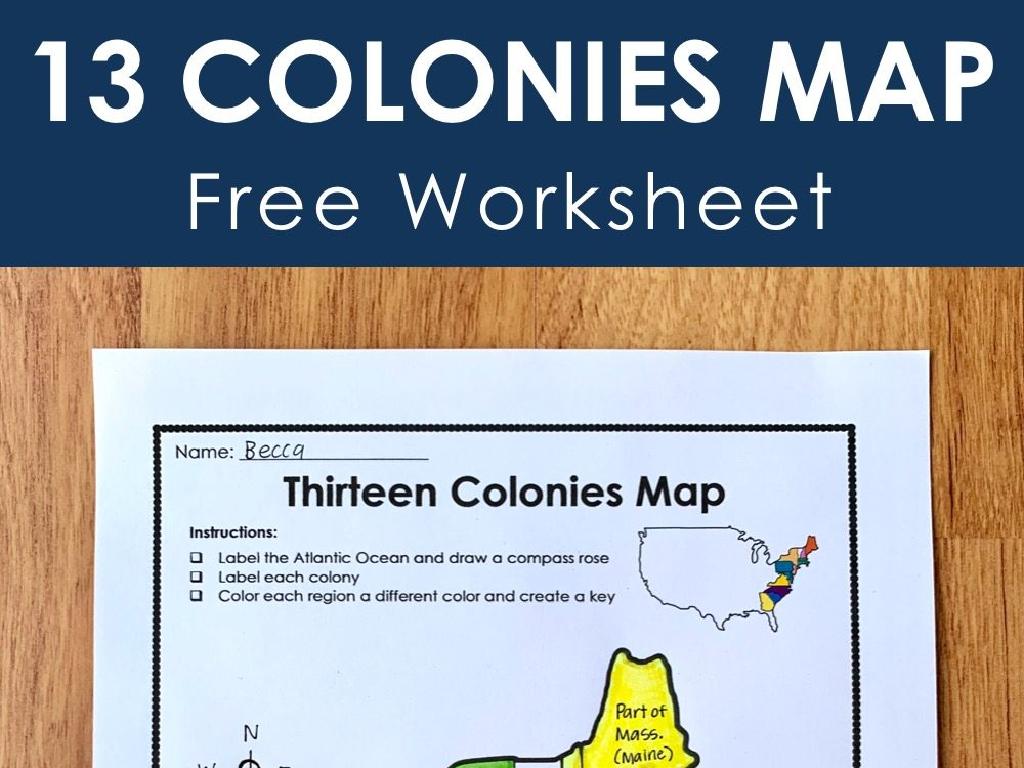Spell Word Names For Numbers Up To One Million
Subject: Math
Grade: Fourth grade
Topic: Place Value
Please LOG IN to download the presentation. Access is available to registered users only.
View More Content
Welcome to Place Value!
– Grasping place value importance
– Place value determines a digit’s value in a number based on its position.
– Place value in daily math
– Helps us add, subtract, and understand money and measurements.
– Today’s goal: Spell large numbers
– Learn to write numbers like 382,456 as ‘three hundred eighty-two thousand, four hundred fifty-six’.
– Practice with numbers to one million
|
This slide introduces the concept of place value and its significance in mathematics, especially for large numbers. Emphasize how understanding place value is crucial for performing everyday math tasks such as addition, subtraction, and dealing with money. The goal for today’s lesson is to enable students to confidently spell out word names for numbers up to one million, which is a foundational skill in numeracy. Provide examples and engage the class with practice exercises, ensuring they understand the pattern and logic behind the naming system. Encourage students to break down numbers into smaller parts (like hundreds, thousands, etc.) to make it easier to spell them out.
Understanding Place Value
– Place value basics
– The position of a digit determines its value.
– Each place is 10x the right
– Moving left, each place is ten times greater.
– Examples: Ones to Thousands
– 1 (Ones), 10 (Tens), 100 (Hundreds), 1,000 (Thousands).
– Spelling numbers correctly
– Practice spelling: 23 (Twenty-three), 4,567 (Four thousand five hundred sixty-seven).
|
This slide introduces the concept of place value, which is fundamental to understanding the number system. Emphasize that the value of a digit is determined by its position within a number. Illustrate this by showing that as we move from right to left, each place is ten times greater than the one before. Use clear examples starting from the ones place and moving up to the thousands place. Encourage students to practice by spelling out numbers in words, reinforcing their understanding of place value and how it relates to writing numbers. Provide additional examples and practice opportunities, such as spelling out numbers up to one million.
Building Numbers with Place Value
– Construct numbers using place value
– Use ones, tens, hundreds to form numbers
– Understand zero’s role in place value
– Zero holds a place, showing no value in that position
– Class activity: Build a number!
– We’ll create a large number as a class, step by step
|
This slide introduces students to the concept of building numbers using place value, which is fundamental in understanding large numbers. Emphasize the importance of each digit’s position in a number and how it determines its value. Explain that zero plays a crucial role by holding places where no value is assigned, ensuring other digits maintain their correct value. For the activity, guide students through constructing a large number, one place value at a time, to reinforce their understanding. Possible activities include using manipulatives, interactive whiteboard exercises, or a place value chart. Tailor the activity to different learning styles, allowing students to work hands-on, visually, and audibly.
Spelling Numbers Up to One Million
– Learn rules for spelling numbers
– Rules like ‘write out numbers under 10’, or ‘use hyphens for twenty-one through ninety-nine’
– Break down large numbers
– Divide numbers into groups: 582,406 as ‘five hundred eighty-two thousand, four hundred six’
– Class practice on spelling
– Understanding place value
– Recognize the value of each digit’s position
|
This slide introduces the fundamental concepts for spelling numbers correctly. Start by discussing the general rules for spelling numbers, such as when to write numbers in words and when to use hyphens. Then, guide students through the process of breaking down large numbers into smaller, more manageable parts, which makes spelling them out easier. Engage the class in a practice activity where they spell numbers together, reinforcing the lesson. Emphasize the importance of understanding place value as it relates to spelling numbers. For example, knowing that in the number 582,406, the ‘5’ is in the hundred thousands place, ‘8’ is in the ten thousands, and so on. This understanding will help them spell numbers correctly. Provide additional examples and encourage students to ask questions for clarification.
Numbers in the Real World
– Large numbers all around us
– Grasping large number sizes
– Understanding that a million is a thousand thousands
– Population counts as examples
– For instance, the population of a city
– Discussing distances and money
– Distances between planets, or savings goals
|
This slide aims to show students how large numbers are a part of everyday life and help them understand the concept of place value in a practical context. Discuss where we encounter large numbers, such as in population figures, which can reach into the millions. Explain the magnitude of large numbers by comparing them to smaller, more familiar numbers. Use relatable examples like the distance from one city to another or the amount of money saved for a big purchase to illustrate the concept of large numbers. Encourage students to think of other examples where they have seen or heard large numbers being used.
Let’s Practice Spelling Number Names!
– Spell out given numbers individually
– Pair up to compare spellings
– Did your partner have the same spelling?
– Discuss challenges in a group
– Share difficulties and learn from others
– Reflect on learning outcomes
– What did we learn from this activity?
|
This slide is for a class activity focused on practicing spelling number names up to one million. Students will first work individually to spell out numbers provided by the teacher. Afterward, they will pair up with a classmate to compare their answers and discuss any discrepancies. Following the pair work, there will be a group discussion where students can share any challenges they faced during the activity. This is an opportunity for the teacher to address common mistakes and provide further clarification. The activity concludes with a reflection on what was learned and how it can be applied in future math problems. Possible variations of the activity could include using flashcards, writing numbers in figures after spelling them out, or creating a game where students earn points for correct spellings.
Class Activity: Number Spelling Bee
– Form small groups for spelling
– Each student spells a number
– Practice spelling numbers up to one million aloud
– Encourage and support each other
– Reflect on the activity together
– Discuss what was learned and how to improve
|
This activity is designed to make learning fun and interactive by having students participate in a Number Spelling Bee. Divide the class into small groups to create a supportive environment. Each student will have a turn to spell a number aloud, which helps reinforce their understanding of place value and spelling of number words. Encourage students to support their peers by listening carefully and offering positive feedback. After the activity, have a group reflection to discuss what was learned, any challenges faced, and strategies for improvement. Possible variations of the activity could include using flashcards, having a ‘judge’ to check the spelling, or creating a friendly competition between groups.
Conclusion: Numbers and Place Value
– Recap of place value concepts
– Importance of place value in spelling numbers
– Understanding place value helps us spell large numbers correctly.
– Homework: Spell ten numbers
– Find ten numbers in your math book and write them in words.
– Reflect on today’s learning
– Think about how place value helps you with math problems.
|
As we wrap up today’s lesson, it’s important to revisit the key concepts of place value and its role in spelling numbers up to one million. Emphasize to the students how each position in a number has a different value and how this understanding is crucial for correctly spelling out numbers. For homework, students should practice this skill by finding numbers in their math book and writing them out in word form. Encourage them to reflect on how today’s lesson can help them in real-life situations, such as reading large numbers in books or on signs. This reflection will help solidify their understanding and appreciation of place value.






